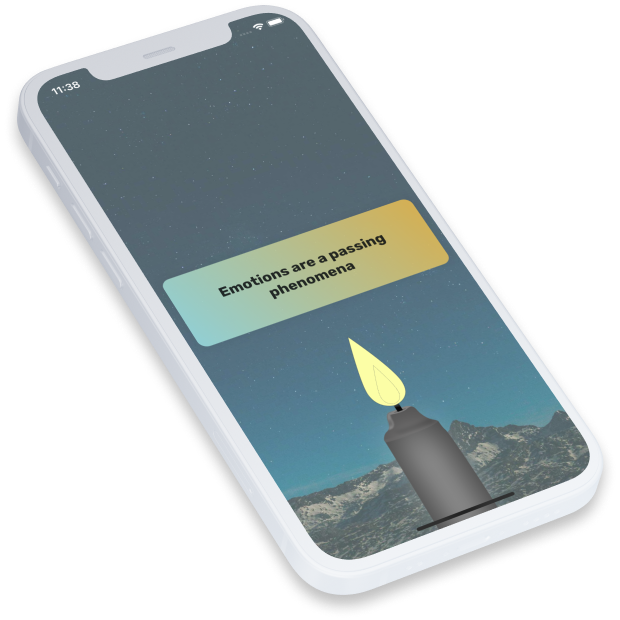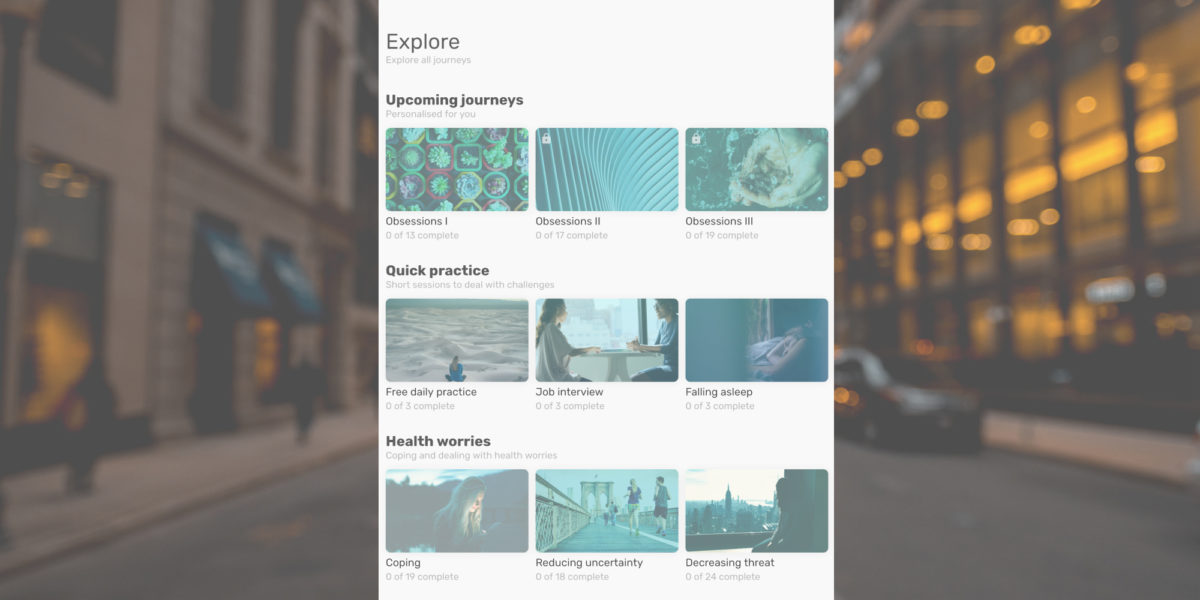How ocd.app helps you reduce anxiety
The app is based on the core principles of CBT. While not being a “therapy” or “treatment” in itself, It directly targets the person’s thought patterns.
Here’s what you’ll discover inside:
- The 14 day formula we use to break negative thinking and reduce anxiety and distress
- The 2 “Magic actions” you can use in every situation
- The most important (but most commonly misused) element in building resilience
- Begin a healthy habit, and stick with it!

The app features:
- Explore maladaptive thoughts common among people suffering from anxiety
- Learn alternative, supporting and helpful thoughts as a replacement for your maladaptive thinking
- Daily exercises that evolve and personalize based on your specific goals and anxiety levels
- Play mini games that assist in creating and maintaining healthy thinking habits
- Take self assessment quizzes to personalize the app based on your condition
- Mood and supportive thinking tracker to help you track your progress
- Exploration of additional mental health topics, such as anxiety, depression, body image, perfectionism and more.
Research has shown that using the app for at least 14 days can build supportive thinking, reduce maladaptive beliefs and increase resilience.
Similarly to CBT, these effects are proven to be lasting. In one study, using the app for 14 days has built resilience that lasted for at least 30 days, even without using the app after the initial 14 days.
Anxiety modules
Topics that directly deal with anxiety
Anxiety I (Basic)
Coping with threat
Reducing negative focus
Belief in change
Anxiety II (Advanced)
Decreasing catastrophizing
Monitoring body sensations
Facing uncertainty
Health anxiety
Vulnerability to illness
Catastrophizing illness
Coping
How do I start?
We created an easy to download and use app that utilizes the latest mobile and big data technology.
- Download the app
- Complete the tutorial. It will guide you through the main principles of the app.
- Personalize based on your goals, age and gender
- Form a healthy habit by training daily
- Important! Don’t use the app when you have compulsions. The app should not be used to seek reassurances in times of need. Instead, use it first thing in the morning or before going to bed
- When you gain confidence, improve your access to helpful thinking and acquire supportive thinking patterns, you can keep using the app on a regular basis – for example twice a week
- Tell us about your story, and share your success with others
Additional modules
Topics related to anxiety
Depression
Self assessment
Embracing and believing in change
Cope with threat
Relationship OCD
Fear of thoughts
Distrust
Embarrassment
Trauma
Belief in change
Dangerous world
Self-trust
Anxiety articles
-

From Worry to Calm: Transforming Generalized Anxiety Disorder with Cognitive Techniques
Generalized Anxiety Disorder (GAD) is characterized by persistent and excessive worry about various aspects of life, including work, health, and…
-

Understanding Anxiety and Clark’s Panic Model
What is Anxiety? Anxiety is a natural human emotion characterized by feelings of tension, worried thoughts, and physical changes like…
-

Discovering Beck’s Cognitive Behavioral Theory: A Revelation in Mental Health
I still remember the day I stumbled upon Dr. Aaron T. Beck’s groundbreaking work on Cognitive Behavioral Therapy (CBT). As…
-

Preparing for Financially Tough Times: A Cognitive Guide for Individuals with OCD
Financial challenges can be daunting for anyone, but for individuals with Obsessive-Compulsive Disorder (OCD), the cognitive distortions that often accompany…
-

9 Tips: ROCD and General Anxiety Disorder
For as long as I can remember, I’ve been a worrier. But it wasn’t until my late twenties that I…
-

Anxiety Management: Quick Relief or Long Term Change?
From the perspective of Cognitive Behavioral Therapy (CBT), seeking quick relief from anxiety may provide temporary relief, but it is…
·
-

Anxiety: 3 common negative biases
Anxiety is a common mental health condition that affects millions of people worldwide. One of the key features of anxiety…
·
-

OCD vs. Anxiety: key differences
Mental diagnosis can be difficult, in part because the differences between individuals’ internal experiences can seem quite nuanced. Per community…



